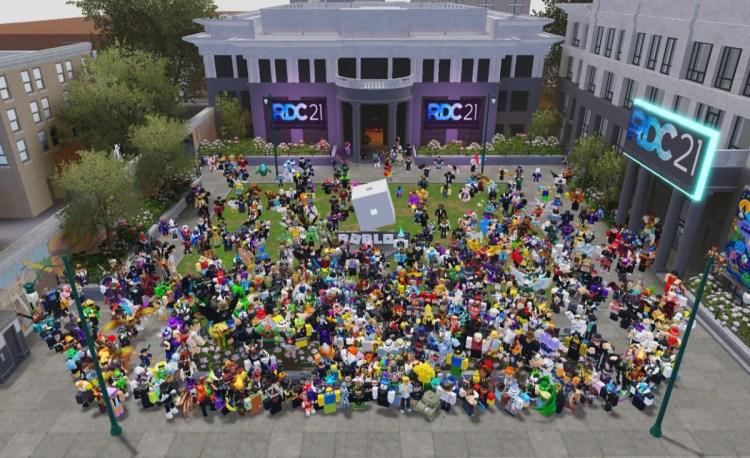
Roblox reported that its first quarter bookings reached $923.8 million, up 19% at a time when much of the game industry has reported weak results.
However, the company’s stock price has fallen 27.36% in trading to $28.32 a share this morning due to a weak financial outlook. Based on the midpoint of its guidance, Roblox expects bookings in the second quarter of $885 million, compared to the consensus estimate of $929 million. For the full year, Roblox forecast bookings of $4.05 billion, which missed the expected target of $4.18 billion.
The company also saw its daily active users in the quarter hit 77.7 million, up 17% from a year ago.
The company reported a net loss of $270.6 million in the quarter, while adjust earnings before interest, taxes, depreciation and amortization (EBITDA) was a loss of $6.9 million, excluding adjustments for increases in deferred revenue of $127.6 million and -$32.9 million, respectively.

The Q1 revenue was $801.3 million, up 22% year-over-year. Net cash and cash equivalents provided by operating activities was $238.9 million, up 37% year-over-year, while free cash flow was $191.1 million, up 133% year-over-year.
Average monthly unique payers were 15.6 million, up 13% year-over-year, and average bookings per monthly unique payer was $19.68, up 6% year-over-year. Hours engaged were 16.7 billion, up 15% year-over-year. Average bookings per DAU was $11.89, up 2% year-over-year. Net liquidity was $2.5 billion.
“Our teams have been hard at work identifying opportunities to drive DAUs, Hours, and bookings growth rates back to 20% year-over-year. We began experimenting with changes in our AI-driven discovery algorithm and the positioning of various content types on the Homepage. We reintroduced platform-wide events like The Hunt: First Edition. And we continued to improve the quality and performance of our app and experiences. Based on results since the middle of April, we believe that these steps are yielding positive results,” said David Baszucki, founder and CEO of Roblox, in a statement.
Must Read: Roblox Reports 38% Revenue Growth in Q3, with 70 Million Active Users
“We are operating more efficiently. Over the past three quarters we have reduced certain infrastructure and trust and safety expenditures, and we have reduced the growth rate of personnel costs (excluding stock-based compensation expense) by holding headcount flat. Capital expenditures are down nearly 50% in Q1 2024 compared to last year. As a result, this past quarter we produced record amounts of operating and free cash flow,” said Michael Guthrie, chief financial officer of Roblox, in a statement.
Roblox said it will no longer refer to Covenant Adjusted EBITDA in shareholder letters and earnings press releases though it will calculate it in the liquidity sections of its Forms 10-Q and 10-K. Roblox will continue to report and guide to adjusted EBITDA which excludes adjustments for the change in deferred revenue and deferred cost of revenue, Guthrie said.
For the second quarter ending June 30, Roblox expects revenue between $855 million and $880 million.
Bookings will be between $870 million and $900 million. And the consolidated net loss between $(267) million and $(265) million. Adjusted EBITDA will be between $36 million and $38 million, which excludes adjustments for the increase in deferred revenue between $18 million and $23 million; an increase in deferred cost of revenue between $(7) million and $(9) million. The total of these changes in deferrals will be between $11 million and $14 million.
For the full year, Roblox expects revenue between $3.45 billion and $3.525 billion. Bookings between $4 billion and $4.1 billion. Consolidated net loss between $(1.096) billion and $(1.044) billion. Adjusted EBITDA between $95 million and $147 million, which excludes adjustments for: Increase in deferred revenue between $568 million and $593 million; increase in deferred cost of revenue between $(133) million and $(140) million; the total of these changes in deferrals between $435 million and $453 million.
Author: Dean Takahashi
Source: Venturebeat
Reviewed By: Editorial Team



